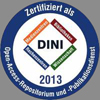Recovery after extreme events - Lessons learned and remaining challenges in Disaster Risk Reduction
- Disasters such as the Indian Ocean Tsunami 2004, but also other extreme events such as cyclones, earthquakes and tsunami substantially affect the lives of many thousands of people - they are events radically and abruptly changing local circumstances and needs. At the same time they can significantly reshape global paradigms of Disaster Risk Reduction (DRR). Such events also bring to light the challenges in coordinating assistance from the “global community” with all the intended and un-intended effects. Two of the most pressing questions therefore are whether the different actors have learned from the disaster and whether processes of DRR and livelihood improvements have been implemented successfully. This volume gathers selected papers addressing the following key questions: - Lessons learned: Which lessons have been learned in a way that a difference can be seen today for the livelihoods and resilience of local people in the regions affected? - Lessons to be Learned: Despite the body of knowledge created and reflected in a good number of lessons learned studies – what is still unsolved or needs to be emphasized? - Monitoring and evaluation: Which DRR measures have been perpetuated and how can they be monitored and evaluated scientifically? - Resilience effects and (unintended) side-effects: Which coping, recovery and adaptation measures are supported by the resilience paradigm and which other areas are side-lined, neglected or even contrary to the intended effects? - Dynamics in risk: In which cases has resilience building taken place? In which cases have ulnerabilities been shifted internally or new vulnerabilities been created? - Relocation/resettlement: How did the relocation/resettlement process of displaced people take place and what are its long-term effects? - Urban-rural divide: How have DRR measures in urban vs. rural areas differed and which linkages but also rifts in rehabilitation and reconstruction initiatives can be observed between the two? - Early warning: What is the future of Early Warning and how can important top-down information chains benefit from or be balanced with bottom-up feedback of users and affected people? It appears that extreme disaster events spark a plethora of actions in academia, civil society, media, policy, private sector and other organisations. Tragic, as such disasters are, they offer incentives for learning, locally and globally. Lately, disaster impacts have in many cases been detracted through the application of knowledge and experience gained from previous events. However, there are still a number of challenges with regards to learning from past disasters
| URN: | urn:nbn:de:hbz:832-cos4-5548 |
|---|---|
| Series (Serial Number): | Integrative Risk and Security Research (2/2017) |
| Editor: | Alexander Fekete, Matthias Garschagen, Celia Norf, Christiane Stephan |
| Contributor(s): | Elvira Iskandar, Safrida Safrida, Sofyan Sofyan, Shirleyana Shirleyana, Riyanti Djalante, Ruth Marie I. Equipaje, Cut Yulvizar, Hrishikesh Venkataraman, Nishara Fernando, Vallam Sundar, Hananto Kurnio, Alexander Fekete, Matthias Garschagen, Hizir Sofyan, Iris Dominguez, Christiane Stephan, Moe Moe, Celia Norf, Christian Baumgartner, Christian Bentler, Manfred Domroes, Pia Hollenbach, Gabriela Neuhaus, Karolina Bednarska |
| Document Type: | Book |
| Language: | English |
| Year of Completion: | 2017 |
| Release Date: | 2017/11/15 |
| Tag: | Disaster Risk Reduction Lessons learned |
| GND Keyword: | Risikomanagement; Krisenmanagement |
| Page Number: | 115 |
| Note: | Correction for paper "Resilient-Designed Community Structures and Facilities for Vulnerable Coastal Cities: Lessons Learned from Indonesia and the Philippines" by Ruth Marie I. Equipaje, Shirleyana & Cut Yulvizar (page 23 onwards) On page 29 the original text says that Tacloban City, Leyte is part of Region XIII of the Philippines, but to be correct, Tacloban City, Leyte is part of Region VIII. |
| Institutes and Central Facilities: | Fakultät für Anlagen, Energie- und Maschinensysteme (F09) / Fakultät 09 / Institut für Rettungsingenieurwesen und Gefahrenabwehr |
| CCS-Classification: | A. General Literature / A.0 GENERAL / Conference proceedings |
| Dewey Decimal Classification: | 600 Technik, Medizin, angewandte Wissenschaften / 624 Ingenieurbau und Umwelttechnik |
| JEL-Classification: | Z Other Special Topics / Z0 General / Z00 General |
| Open Access: | Open Access |
| Licence (German): |  Creative Commons - Namensnennung, Nicht kommerziell, Keine Bearbeitung Creative Commons - Namensnennung, Nicht kommerziell, Keine Bearbeitung |


